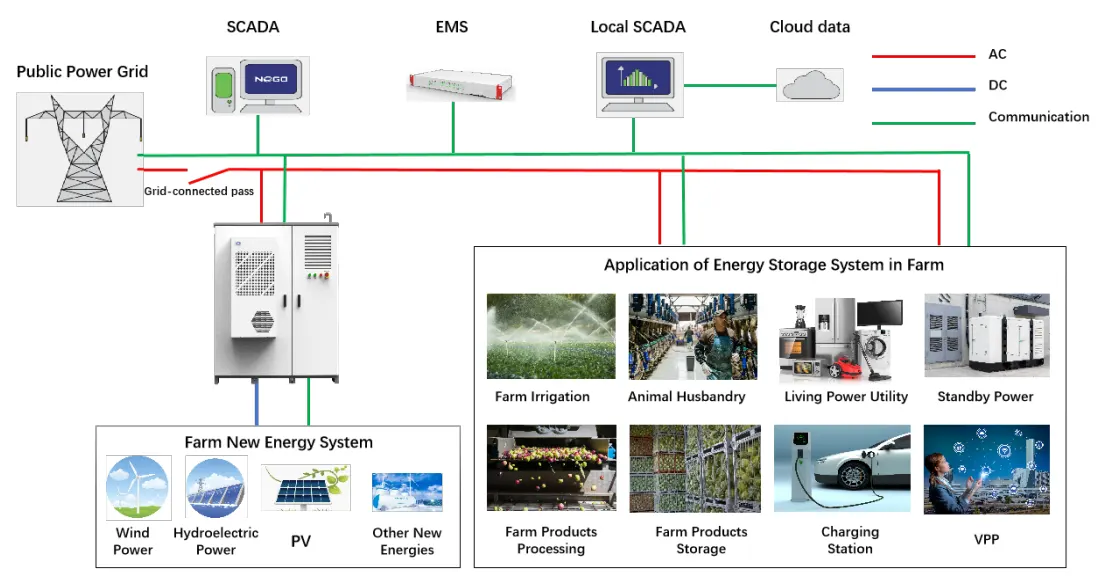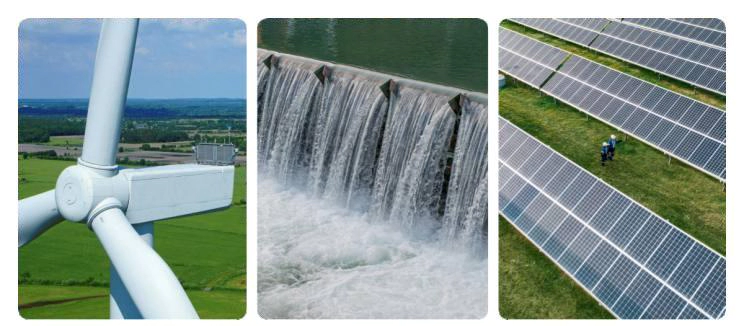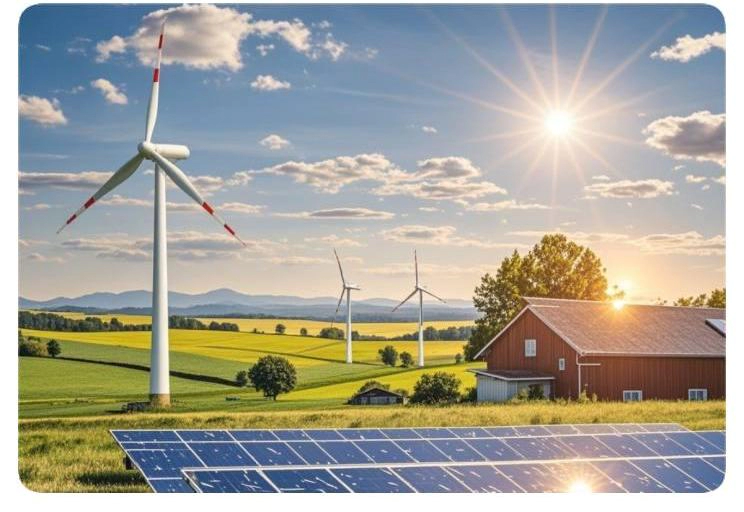Smart Energy Systems on Farms
Smart Energy Scenarios for Modern Farms

Clients have the option to choose between On-grid Microgrid or Off-grid Microgrid based on their specific preferences. To fulfill power and capacity needs, energy storage units can be integrated with various outdoor cabinets or tailored container energy storage systems.
Smart Energy System Characteristics
New Energy
- E.g., hydropower, wind power, photovoltaics
- Less dependence on traditional fossil fuels
- Green and sustainable development
Equipment Interoperability
- Intelligent sensors and control systems
- Equipment linkage (such as irrigation systems, breeding
equipment, etc.) - Improvement of overall energy efficiency
Efficient Energy Conversion
- Adoption of advanced energy conversion technology
- Improvement of energy conversion efficiency
- Less energy loss
Economic Benefits
- Less energy costs and optimize production processes
- Improvement of the economic efficiency of the farm
- Achievement of sustainable development

Diverse and Critical Application of Energy Storage on Modern Farms
- Stable Power Supply
- Emergency Backup Power Supply
- Integration of Renewable Energy
- Processing and Storage of Agricultural Products
Ensure that agricultural machinery, like irrigation systems and ventilation equipment, functions steadily and without interruption. In times of low rainfall, a consistent power supply is crucial to the proper functioning of irrigation systems, safeguarding crops from harm due to water scarcity. For instance, sudden power failures can disrupt large sprinkler irrigation systems, resulting in uneven watering and impacting crop growth.
It is essential to supply uninterrupted power to greenhouse environmental control systems to regulate temperature, humidity, and lighting levels. For instance, during harsh winter conditions, an energy storage system can maintain continuous operation of greenhouse heating equipment, protecting crops from freezing.
Responding to abrupt natural calamities or disruptions in the power network is crucial. In instances where severe weather conditions like storms or snowstorms result in power grid failures, activating the energy storage system promptly becomes essential to sustain fundamental operations on the farm, such as maintaining lighting and communication facilities. Following a hurricane, municipal power grids might require several days or more for restoration, highlighting the significant role that energy storage systems can play in minimizing the impact on farm activities and daily life.
Furthermore, mitigating risks to livestock due to power failures is imperative. Power interruptions affecting essential systems like ventilation and insulation in breeding environments such as chicken or pig farms can lead to animal health issues and fatalities.
Capture surplus energy produced by solar and wind sources. During sunny or windy spells, store the extra power for use during periods of darkness or calm weather. For instance, numerous expansive farms have integrated extensive solar panel arrays to amass daytime electricity, storing it for nighttime consumption. Enhance cost-efficiency and lessen reliance on conventional grids by judiciously employing energy storage solutions. Farms can charge during low electricity price periods and discharge when prices rise, effectively trimming electricity expenses.
Ensure a reliable power source is available for agricultural processing machinery to uphold processing standards and effectiveness. For instance, in fruit canning, stable power guarantees consistent production line speed and product quality uniformity. Sustain power supply for refrigerated storage to preserve produce freshness and quality. For example, a significant quantity of fruits and vegetables require specific low temperature conditions for storage, where power interruptions can lead to spoilage. In essence, energy storage systems find diverse applications in farm settings, significantly enhancing production efficiency, upholding produce quality, cutting energy expenses, and addressing emergencies.
